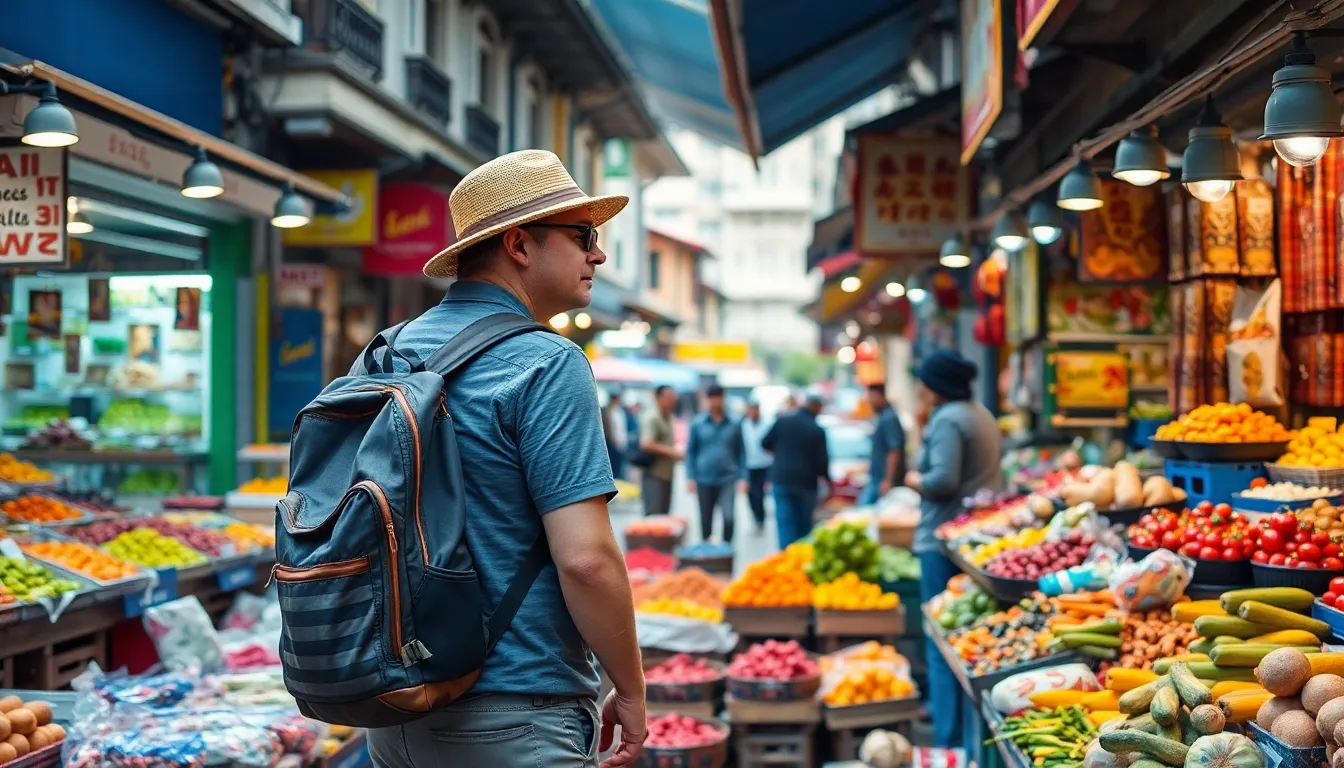Independent travel opens up a world of adventure and self-discovery. It allows travelers to break free from the constraints of guided tours and explore at their own pace. Whether it’s wandering through bustling markets or hiking remote trails, the freedom to choose one’s own path can lead to unforgettable experiences.
For many, the allure of independent travel lies in the opportunity to connect with local cultures and forge genuine relationships. It’s about stepping off the beaten path and embracing spontaneity, creating memories that are uniquely personal. With the right planning and a spirit of adventure, anyone can embark on a journey that reflects their individual interests and passions.
Table of Contents
ToggleWhat Is Independent Travel?
Independent travel refers to the practice of exploring new destinations without guided tours or travel agencies. Travelers organize their trips, often relying on personal research and preferences. This autonomy allows individuals to choose accommodations, transportation, and activities that resonate with their interests.
Independent travel fosters a deeper connection with local cultures. Engaging directly with residents enhances immersion and provides opportunities for authentic interactions. Spontaneity often characterizes independent journeys, enabling travelers to adapt plans based on emerging interests or recommendations from locals.
Budget control is another advantage of independent travel. Travelers can choose economical options, from budget accommodations to local eateries, which helps in managing expenses effectively. This flexibility encourages a more diverse travel experience.
Independent travel also cultivates self-reliance and confidence. Navigating unfamiliar environments and overcoming challenges fosters problem-solving skills. Each journey presents unique opportunities for learning and personal growth. Ultimately, independent travel embodies the spirit of adventure while providing a personalized and enriching experience.
Benefits of Independent Travel

Independent travel offers significant advantages, including flexibility, cultural immersion, and personal growth. These benefits enrich the travel experience and promote a deeper understanding of new environments.
Flexibility and Freedom
Flexibility defines independent travel. Travelers can customize itineraries based on their preferences. They can choose destinations, accommodations, and activities without time constraints. If they find an attraction captivating, they can prolong their stay; if not, they can move on. This control enhances spontaneity, enabling travelers to embrace unexpected opportunities.
Moreover, independent travelers can adjust plans instantly. They respond to weather changes or discover hidden gems, enhancing the journey. This freedom encourages exploration and invites authentic experiences that tailored tours often lack.
Cultural Immersion
Cultural immersion stands as a hallmark of independent travel. By interacting with locals, travelers gain firsthand insights into traditions and customs. Engaging in everyday activities fosters genuine connections. Travelers can visit markets, attend local events, or dine in home kitchens, creating memorable experiences.
Additionally, independent travel allows for participation in community programs. Volunteering or joining workshops helps travelers forge lasting relationships and deepen their understanding of different cultures. This engagement cultivates mutual respect and appreciation, enriching the traveler’s perspective on the world.
Planning Your Independent Travel
Careful planning enhances the independent travel experience. It ensures a well-organized adventure while allowing flexibility and spontaneity.
Researching Destinations
Researching destinations forms the foundation of independent travel. Travelers should explore various factors, including:
- Local attractions – Examine popular landmarks, hidden gems, and cultural sites worth visiting. Reading blogs and travel guides aids in uncovering unique destinations.
- Cultural norms – Understand customs, traditions, and etiquette to navigate social interactions effectively. Gaining knowledge about local behaviors fosters respectful engagement.
- Safety information – Review updated safety ratings and travel advisories to make informed choices. Government websites and travel forums provide reliable safety data.
- Transportation options – Investigate public transportation systems, rental services, and walking routes to enhance mobility. Familiarity with local transit methods saves time and reduces stress.
- Accommodations – Compare hotels, hostels, and vacation rentals for budget and comfort. Platforms like Airbnb and Booking.com offer diverse options tailored to personal preferences.
Budgeting and Expenses
Budgeting and managing expenses are critical for successful independent travel. Key budgeting elements include:
- Daily budget – Set a daily spending limit for food, activities, and transportation costs to avoid overspending. Incorporating a flexible buffer permits unexpected expenses without stress.
- Accommodation costs – Allocate funds for lodging that match personal comfort levels and preferences. Researching deals ensures budget-friendly options are available.
- Transportation budget – Estimate transportation costs based on travel plans. Include expenses for public transport, rental cars, or potential ride-sharing fares.
- Activity fees – Identify costs associated with attractions and experiences. Investigating free and low-cost activities enhances variety while promoting savings.
- Emergency fund – Maintain a reserve for unforeseen expenses, such as medical emergencies or last-minute travel changes. Planning for emergencies cultivates peace of mind.
Effective planning through research, budgeting, and expense management enhances independent travel experiences. Armed with knowledge and preparation, travelers engage more deeply with their destinations, fostering meaningful adventures.
Tips for Successful Independent Travel
Traveling independently requires careful preparation and mindful execution. Utilizing practical tips enhances the experience while ensuring safety and comfort.
Safety Considerations
Prioritizing safety enhances the independent travel experience. Always research local safety information specific to destinations, including crime rates and health advisories. Keeping emergency contacts handy, such as local authorities or the nearest embassy, ensures quick assistance when needed. Additionally, registering with travel assistance programs offers extra security.
It’s wise to have copies of important documents, like passports and travel insurance, stored both physically and digitally. Using apps that provide real-time information on travel advisories and local news aids in staying informed. Adapting to local customs and being aware of surroundings contributes to a safer journey as well.
Packing Essentials
Packing strategically ensures readiness for various situations while traveling independently. Start by selecting versatile clothing suited for the climate and cultural expectations of the destination. Include layering options that provide comfort in changing weather conditions.
Incorporating essential items, such as a first-aid kit and travel-sized toiletries, promotes self-sufficiency. Packing lightweight travel gear, like a durable backpack and a reliable power bank, enhances convenience. Don’t forget to include universal travel adapters for electronics.
Travelers should also consider carrying a refillable water bottle and snacks, providing sustenance during long excursions. Preparing for unexpected situations boosts confidence, ensuring independent travelers maximize their experiences.
Independent travel opens the door to a world of adventure and personal growth. By embracing the freedom to explore at one’s own pace, travelers can create unforgettable experiences that resonate deeply with their interests. The connections formed with local cultures not only enrich the journey but also foster a greater understanding of the world.
With careful planning and a spirit of spontaneity, independent travelers can navigate new environments confidently. This approach not only enhances the travel experience but also cultivates valuable life skills. Ultimately, independent travel is about more than just visiting new places; it’s about discovering oneself through the journey.





